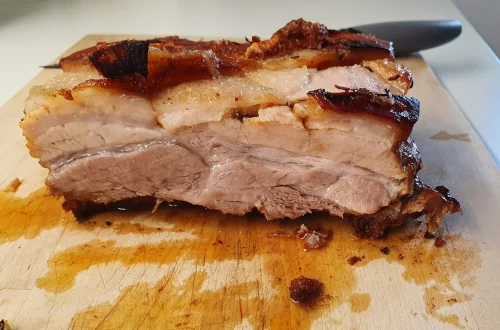
Is Babybel Cheese Healthy for Your Diet and Nutritional Needs?
Cheese has long been a staple in many diets around the world, offering a wide range of flavors and textures. Among the myriad of cheese options available, Babybel cheese has carved out a unique niche. Known for its distinctive wax coating and convenient packaging, Babybel is often a favorite among both children and adults. But as consumers become increasingly health-conscious, the question arises: Is Babybel cheese a healthy option for those looking to maintain or improve their diets?
As people strive to make informed choices about their nutritional needs, understanding the components of various food items is crucial. Cheese, in general, can be a source of essential nutrients, but it can also be high in calories and saturated fats. Babybel, specifically, is marketed as a snack cheese, appealing to those seeking a quick and easy source of nutrition. However, its health benefits and drawbacks are worth examining more closely.
In this article, we will delve into the nutritional profile of Babybel cheese, consider its role in a balanced diet, and evaluate its suitability for different dietary needs. By the end, you will have a clearer understanding of whether Babybel cheese aligns with your health goals.
Nutritional Profile of Babybel Cheese
Babybel cheese is primarily made from cow’s milk, and its nutritional composition reflects its dairy origins. A typical serving of Babybel cheese, which is about 20 grams, contains approximately 70 calories. This relatively low-calorie count makes it an appealing choice for those looking to manage their weight.
In terms of macronutrients, Babybel cheese provides a decent amount of protein, boasting around 6 grams per serving. Protein is essential for various bodily functions, including muscle repair and immune support, making this cheese a good snack option for active individuals.
Another important aspect is the fat content. Babybel cheese is considered a semi-soft cheese, containing about 5 grams of fat per serving, with approximately 3 grams being saturated fat. While fat is a necessary component of a balanced diet, moderation is key. The presence of saturated fat can raise cholesterol levels if consumed in excess.
Furthermore, Babybel cheese is a source of calcium, providing around 15% of the daily recommended value in just one piece. Calcium is crucial for maintaining strong bones and teeth, making Babybel a beneficial snack for those looking to meet their calcium needs.
It’s also worth noting that Babybel cheese contains other vitamins and minerals, including vitamin A and phosphorus, which support various bodily functions. However, it’s low in fiber and carbohydrates, which are also important for a balanced diet. Overall, while Babybel cheese can contribute positively to your nutritional intake, it’s essential to consume it alongside other food groups.
Babybel Cheese and Weight Management
When it comes to weight management, the convenience and portion control offered by Babybel cheese can be advantageous. Its individual packaging makes it easy to grab on the go, allowing for a quick source of protein and healthy fats without the need for preparation.
For those on a calorie-restricted diet, Babybel cheese can fit into meal plans when consumed in moderation. Its relatively low-calorie count makes it a suitable snack option compared to other cheese varieties that might be higher in calories and fats. The protein content can help promote satiety, keeping hunger at bay between meals.
However, it’s essential to consider the overall dietary context. While Babybel cheese can be a part of a weight management strategy, it should not be the sole focus. A balanced diet rich in fruits, vegetables, whole grains, and lean proteins is crucial for long-term weight loss and maintenance.
Moreover, mindless snacking can lead to unintentional calorie surplus. Therefore, portion control is vital. Although Babybel cheese is individually wrapped, it can be easy to consume multiple pieces without considering the cumulative calorie intake.
In conclusion, while Babybel cheese can support weight management due to its protein content and low-calorie profile, it’s best enjoyed as part of a diverse and balanced diet. Ensuring that you are also incorporating other nutrient-dense foods will enhance your weight management efforts.
Dietary Considerations and Restrictions
Babybel cheese is suitable for many dietary preferences, but it’s essential to take individual needs into account. For those following a vegetarian diet, Babybel cheese is an excellent option, as it does not contain any animal rennet. This makes it a popular snack for vegetarians looking to add cheese to their meals or snacks.
However, for individuals who are lactose intolerant or allergic to dairy, Babybel cheese may not be the right choice. Despite being a semi-soft cheese, it still contains lactose, which can cause discomfort for those with lactose intolerance. There are lactose-free cheese alternatives available that can provide a similar taste and texture without the associated digestive issues.
Additionally, those on a low-sodium diet should exercise caution. Babybel cheese contains sodium, which can be a concern for individuals managing high blood pressure or other cardiovascular conditions. While the sodium content is not excessively high, mindful consumption is advisable.
For those following specific diets, such as ketogenic or paleo, Babybel cheese can fit into the framework, provided it aligns with their carbohydrate and fat intake goals.
In summary, Babybel cheese can be a versatile snack option, but it’s important to consider individual dietary restrictions and health conditions. Consulting with a healthcare provider or nutritionist can help you determine how Babybel fits into your personal dietary needs.
Health Benefits of Babybel Cheese
Despite its small size, Babybel cheese offers several health benefits that make it a worthwhile addition to a balanced diet. One of the most significant advantages is its high protein content. Protein plays a crucial role in building and repairing tissues, and it is vital for overall health. Including protein-rich snacks like Babybel can help support muscle maintenance and recovery, especially for active individuals.
Furthermore, the calcium found in Babybel cheese contributes to bone health. Strong bones are essential for overall well-being, and adequate calcium intake during childhood and adulthood can help prevent osteoporosis later in life. Babybel cheese is an easy way to incorporate calcium into your diet, particularly for those who may struggle to consume enough dairy products.
Additionally, Babybel cheese can be a source of healthy fats. While it’s important to monitor fat intake, incorporating moderate amounts of healthy fats can support heart health and provide essential fatty acids that the body cannot produce on its own. The fat in Babybel cheese can also help improve the absorption of fat-soluble vitamins, such as vitamins A, D, E, and K.
The convenience of Babybel cheese also encourages healthier snacking habits. By having a quick, nutritious option readily available, individuals may be less likely to reach for processed snacks high in sugar and unhealthy fats.
In conclusion, Babybel cheese offers a variety of health benefits that can support a balanced diet. Its protein and calcium content, along with the presence of healthy fats, make it a valuable snack option for individuals looking to enhance their nutritional intake.
**Disclaimer: This article is for informational purposes only and is not intended as medical advice. For any health-related concerns, please consult a healthcare professional.**




